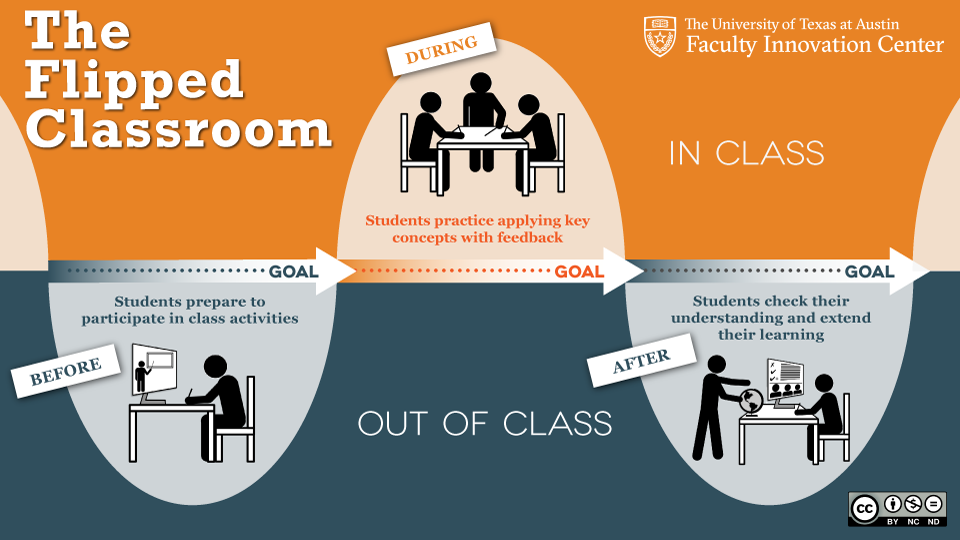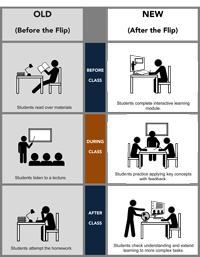A flipped class (view image) is one that inverts the typical cycle of content acquisition and application so that:
- students gain necessary knowledge before class, and
- instructors guide students to actively and interactively clarify and apply that knowledge during class.
Like the best classes have always done, this approach supports instructors playing their most important role of guiding their students to deeper thinking and higher levels of application. A flipped class keeps student learning at the center of teaching.
Why are instructors flipping their class?
Students learn more deeply.
As a result of students taking responsibility, interacting meaningfully and often with their instructor and peers, and getting and giving frequent feedback, they acquire a deeper understanding of the content and how to use it.
Students are more active participants in learning.
The student role shifts from passive recipient to active constructor of knowledge, giving them opportunities to practice using the intellectual tools of the discipline.
Interaction increases and students learn from one another.
Students work together applying course concepts with guidance from the instructor. This increased interaction helps to create a learning community that encourages them to build knowledge together inside and outside the classroom.
Instructors and students get more feedback.
With more opportunities for students to apply their knowledge and therefore demonstrate their ability to use it, gaps in their understanding become visible to both themselves and the instructor.
How do I flip my class?
This guide is designed to walk you through the steps of flipping a single class; the process is scalable for flipping portions of each unit or an entire course. One of the major factors in course redesign is the time it takes to do it well. We recommend pilot testing the the flipped model with a single class before engaging in a complete redesign. Learn More
The featured videos about the flipped classroom may also be viewed Vimeo.
Learn More
Additional Resources
Whether you want to flip one class session or an entire course, the following questions will help guide you through the essentials.
This infographic shows a typical sequence of learning opportunities before, during, and after a flipped class.
This table shows the differences in the student experience of a traditional and flipped class.
Instructors who are flipping their class often describe the impact of this shift from the traditional classroom to the flipped classroom.



